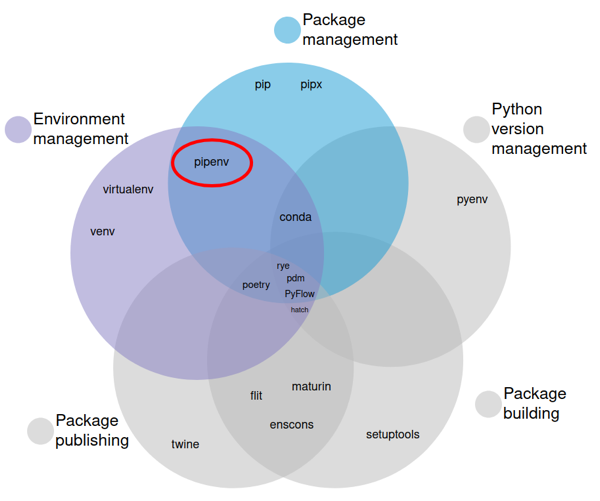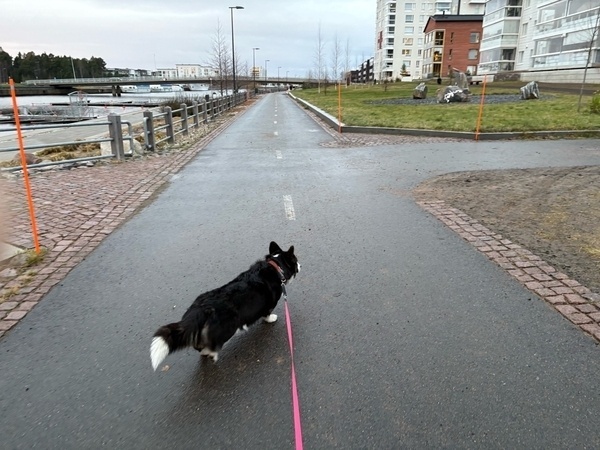DailyDogo 1102 🐶

DailyDogo 1102 🐶

DailyDogo 1101 🐶

DailyDogo 1100 🐶

DailyDogo 1099 🐶

DailyDogo 1098 🐶

DailyDogo 1097 🐶

“Things are inevitable and there is nothing you can do about it”, is at the core of the The Fatalistic Turn. But the answer to this doesn’t need to be acceptance. It just has to be an answer.
It could be “F**k You Optimism”:
We need this kind of radical hope now more than ever. Not because it will save us – no one is coming to save us – but because the alternative is paralysis. The systems want us to feel small, powerless, apathetic. —JA Westenberg
And another quote:
Even when it feels futile. Especially then. Because in a collapsing world, defiant hope might be the only thing worth holding on to. —JA Westenberg
DailyDogo 1096 🐶

Kinda along the lines of Paradigms Are Strategic Tools:
The social media researcher Erin Kissane reminds us that the current terrible landscape of the public social internet is made and sustained by people and that this too shall pass:
The dangers of the situation are obvious and real, but it matters that we remember that the world’s big platforms are steered not by shadowy forces, but by teams of gold-rush-addled dorks whose sometimes-well-meaning employees are stuck frantically LARPing world government on internal forum software. […] But all these platforms and attendant dipshits will be replaced, eventually, and what happens next isn’t guaranteed. […] So the necessary counterpart to understanding that the Dark Forest Internet complex obscures the arbitrary and temporary nature of the current situation might be accepting that there is no moral arc of the world. Our systems bend toward justice when we bend them, and keep on bending them, forever. — Against The Dark Forest
The article is well worth a read.
I did not agree with everything in it though. The dark forest framing is, I think, less flawed than is claimed. I especially think that Maggie Appleton’s framing as expressed in her drawing is great. Because it incorporates not only the forest and the cozy web, but also an undergrowth made of digital gardens, newsletters and RSS Feeds. So public spaces that are nonetheless somewhat hidden. This layer is missing in Kissane’s text as is the dark web (where morals are decomposing) under the cozy web.
I think the impulse here is to point out that the forest was planted and won’t last forever. And I think that is a missing piece in this metaphor.
But. What I will always disagree with is to frame the expression of a system as a simple question of choice, of good vs. bad intentions. A system as is described in this image is not easily changed.
Given all of this, it seems questionable for technologists to cede the territory of the public internet to their fellow-but-worse technologists and the predatory forces they assemble and arm. […] The public social internet is worth designing and governing in a way that demonstrates less than total amnesia about the history of human civilizations and the ways we’ve learned to be together without killing each other. For people with the ability and willingness to work on network problems, the real choice isn’t between staying on the wasteland surfaces of the internet and going underground, but between making safer and better places for human sociability and not doing that.
I find the insinuation here questionable. I am a being of the undergrowth. I love the small and indie web. Calling me unpolitical or a non-combatant because I am not re-inventing or re-design social platforms and am therefore basically an enemy, seems wrong. Maybe this is not what has been said, but I kinda got the impression. “Don’t be a badger!”, it is demanded. But what if you are a badger? I am all for digital spaces reimagined as public goods, but to think that it could only happen in the forest layer and if you’re not into forestry (but rather into gardening or whathaveyou) you’re doing it wrong, is naive to me.1
Furthermore it seems that just because current iterations of the big social media platforms might die, that we’re not finished dealing with the nature of complex systems itself and therefore the flaws of platforms - the hate, the predators, the data capture, etc. pp. - are not something you just “design out” of them in the next iteration. Because you can’t. And I don’t mean that you couldn’t make changes to the current crop of platforms, but change in any direction you want to take this, is a fickle thing: Exert too much control and it becomes oppression and people will switch platforms. Exert too little and it turn into a free for all and people will switch platforms. Give too many tools to people and the platform will appear too complex. People will switch platforms. Give no tools (or not the right ones) and the platform will appear too restricted. And on and on. Current platforms form a delicate balance. They are the result of a lot of fine-tuning and what is a viable social network will have to play within the realm of possible viable platforms.
So as I said above: Just “unfuck the networks” is a naive notion. It’s a systems as imagined vs. systems as found “fallacy”: A distinction made by Richard Cook that I’ve found very helpful to explain what is missing from people’s arguments who are about ideas and propose solutions mainly based on (new or reframed) ideas only: A system found is a freaking mess. And so is the dark forest that is the publicly visible internet.
So, I guess, what I’m saying is that a forest is not designed but maintained by its inhabitants. And this maintenance is also not done on the whole thing at once by only well meaning, well educated and wise deers and squirrels (people and institutions). The internet is a wilderness. And as such it will always include predators: skilled and unskilled ones, big ones and small ones. Some we recognize as part of the forest, others we think of as “meta predators”. It is therefore also not a controlled or a flawless place where you can just be and do, guaranteed free from harm. This is exactly a thing that is more possible in smaller, more constrained places.
The social internet doesn’t “simply exist” for us to just inhabit, true. It is made, yes. By us. Partly yes. But it being made doesn’t mean that it doesn’t exhibit the qualities of complex social systems.
I guess later in the text it is more said that the forest should be part of the sphere of influence, instead of being the sole layer that counts: “Mole’s experience has opened out to encompass the whole of the wood and countryside and his friendships…”. ↩︎
DailyDogo 1095 🐶

DailyDogo 1094 🐶

“…will discuss our polycrisis, and the swift and holistic reform of global governance institutions that is needed to respond to these urgent transnational and planetary challenges we are facing…”
My whole live has been spent living with the apparent blindness these sentences express. Activists of the alarmist school: There is no swift and holistic reform coming! How can you be interested in change but not understand this? Or if you do: Why not be honest with fellow non-alarmist activists?
EDIT: “My whole live has been spent living with the apparent blindness these sentences express.” What I mean: So many well-meaning people I have encountered - directly or indirectly - seem to believe this is possible. What is interesting: This cry for swift action, makes me think that there must be a sound argument for the plausibility of said swiftness. But those arguments never survive closer inspection (by me, that is to say: they do not seem more plausible), so it’s hard to know how it would feel to be able to believe it. The only reason I know of is that it is only ever said strategically and not ever actually meant. So it’s similar to what protest actually is about (not rational discourse in order to convince fellow citizens, but disruption).
DailyDogo 1093 🐶

Python really is almost on par with Javascript as regards to reinventing wheels.
Venn diagram taken from this awesome overview of python tools.

DailyDogo 1092 🐶

DailyDogo 1091 🐶

DailyDogo 1090 🐶

It is a little funny how my Oura ring claims that my stress levels are low when they are anything but. (I know physical stress is not the same as psychological stress, but still rubbs me the wrong way.)
DailyDogo 1089 🐶

DailyDogo 1088 🐶

DailyDogo 1087 🐶

DailyDogo 1086 🐶

Since I hadn’t yet written about it here (but made allusions to it on mastodon): I am concerned about and disappointed in the US, especially its tech sector. A snarky reader could point out that disappointment in the tech sector is a universal experience and that snarky reader wouldn’t be wrong. However, it seems correct to assume that big tech - and all big (software) tech is US tech at this point - is bad.1
But not only big tech, also many smaller and medium-sized tech companies are based in the US and many of the tools that we use are US-based. And apart from us giving money and data to these US-based companies and therefore their economy, we as non-US customers don’t matter in the same way as US-based customers. Also do our laws clearly not matter as much. And our values also don’t matter in the same way.
Now, everything is a lot more complicated than that. Just because things are made in Europe doesn’t mean they are better, more ethical, safer or will respectfully engage with consumers/users. But a shift to Europe still means something. It’s about control or at least access. If I’m unlucky with a piece of software that is made in Europe, I do have different ways to enforce laws. I can try to find other users that have similar concerns and we could try to enforce or improve a given situation within the EU together.
In practice, this is not an avenue I’d want to ever go down, but it’s still better to have it available, than to sit here on this side of the Atlantic and let people with their own problems and interests just take my money and data and otherwise don’t care about me.
Giving my money to Europeans also feels better. It pays salaries of fellow European workers or entrepreneurs. It also breaks the pattern that money and data for software just has to go to the USA: Even if that’s not literally true in 100% of the cases, it seems to be the default. It doesn’t have to be the default.
There’s also an opportunity here to reevaluate the landscape in terms of what is available as a self hosted solution. Is there maybe even a local first or local only option that suffices? In other words: Is there an open source tool or an app (as opposed to a service with a subscription) that could be used?
So, most things in my setup can be replaced by something less invasive and more under my control. It’ll take some work and it’ll take some getting used to, but changing the things I use to get work done is certainly possible. This might not do a lot in the grand scheme of things, but it certainly makes me feel a little better and makes me live more according to my own beliefs and values.
So with that said, it’s not that easy or reasonably possible to just get rid of big tech altogether, as we all know. I certainly will also not just switch to worse apps just because “US bad”, although I’ll use my momentum to reevaluate and to shake things up a bit.
That being said, one bit tech company I just can’t let go is Apple. All my personal devices are apple devices and even though I hate their rent seeking practices in the app store and some of their other behaviors (and their recent ads, too), but by comparison it still seems to me the least bad option in consumer electronics. It’s a little bit harder to say how committed they actually are to their stated goals: accessibility, education, caring for the environment, inclusion and diversity, privacy, equity and investments in a fair supply chain (all taken from the footer of the apple website under the heading of Apple Values), but be that as it may: Apple actually does give me the option to buy carbon neutrally produced products for example2 and it still seems to me that what they say about privacy is not just empty talk.3
I am also fine with using indie apps and services that are simply indispensable to me. Due comes to mind. And obviously Obsidian. Good Apps.
And finally I’m willing to try new stuff. In a move almost diametrically opposed to the tone of this post, I recently started to use TickTick for example, even though it is US/China-based.4
I have not made many moves, yet. But two come to mind:
Jetbrains is a company based in the Czech Republic that was founded by three Russians back in the day. That sounded an alarm at first. And to be honest I had my gripes about some of the UX with PHPStorm over the years (1, 2) so I never bothered to check it out further. However three things happened:
Having to switch IDEs for recreational programming and work - especially since working with Laravel in PHPStorm using the idea plugin is just so great - felt more and more cumbersome and so I kinda sorta just started to customize and use PHPStorm as my main IDE.
Because my setup consists of two machines - a beefy “devbox” running linux and all the projects; and a MacBook Air as the client from which I do “remote work” through ssh on the devbox - 100% of my work is done “remotely”. That means I either use VSCode with their various remote extensions or use Jetbrains Gateway.
Whereas VSCode works with 1Password’s SSH-Agent, Jetbrains Gateway does not and has the added annoyance that even when using a more conventional ssh-key makes you enter its passphrase twice for some reason. I’ll have to look into that a little more, but for the time being I will use VSCode for source control and for more dev-ops-y tasks that require to edit a file here and there, but I’m not working on a specific project adding features.
Why even move away from VSCode? Isn’t it open source? It is. And it is remarkable that Microsoft of all the companies has made a product that is just great in almost all aspects. But: It’s still Microsoft and that always bothered me. I have to use various Microsoft enterprise products throughout my working day and still deal with Microsoft induced bs in my free time in the form of tech support. Their recent moves vis-a-vis Microsoft Recall are questionable at best. Microsoft is very often not the least worst option and even though their free open source editor is one of the best you can get (but what about emacs), it is actually not the best IDE for PHP-based development.
Intelephense, a 3rd party language server and vs code extension for PHP is great and impressive. AFAIK it is still developed by only one person! But it can’t handle big repos and it lacks refactoring tools that you get when you use PHPStorm. A little earlier I pointed out that the Laravel Idea plugin for PHPStorm is amazing and there just doesn’t exist a comparable alternative for VSCode.
This is not a post about why PHPStorm is better than Visual Studio Code for PHP development, but there is another “social” point worth mentioning: In my circles almost everyone - certainly everyone at my current job - is using PHPStorm anyways. My company provided me with a license for it and all the documentation on how to setup a new project is basically written for PHPStorm users. When working together with another developer, it can be difficult to not get derailed by the different ways things work in vscode vs. PHPStorm. Especially when I am the one who needs help, I don’t want to be asked all the time “why don’t you just use PHPStorm…” as if that would solve the problem (it almost never does). I don’t want to deal with that anymore.
All of these things added up to me using vscode less and less. It depends a little on the project, but as it pertains to this blog post, I am actually quite happy that PHPStorm is based in the EU and that it became my main driver.
YNAB - or You need a budget - is an US-based budgeting app that I have used (and at times loved!) on and off for years at this point. It has been much cheaper in the past and they recently raised prices (again). Well, fortune would have it that I was made aware of a pretty comparable open source solution that is called Actual Budget. Is it more rickety and less pretty than YNAB? Yes. But does it have basically the same feature set PLUS a bank account syncing feature that works with my bank (which is something YNAB still doesn’t offer) and costs much less than YNAB? Also yes.
I love that actual can be run super easily through the Malta-based hosting service PikaPods. It’ll cost me the equivalent of 16.92$ (so ~16€, but I don’t know if that includes VAT or not…) instead of 109$ (+ VAT; so 103.21€ + 25,5% = 129.53€) per year. So after thinking about it for a couple of months I made the switch. The world didn’t implode and I’m still budgeting.
Sometimes something happens in the world and it somehow changes my whole approach to certain things. The very disappointing and worrying US-election and the (only slightly but still) better situation here in Europe - he says living in a country run by rightwing government that at this very moment dismantles the social democratic base that makes Finland so livable - made me reevaluate my setup: The apps and tools I use and what I’m willing to spend for them - be that time, money, brain cycles or all of the above.
I imagine that this’ll continue and that I will continue to change apps and services in a way that makes them more Eurocentric. As I said above, this is more about potential control (and actual control if switching to something self hosted) than anything else, but I would lie if it wasn’t also in part about a loss of trust.
I will say this a few times throughout this post: Not all big tech is US tech. But most is. Almost all big players in tech - desktop, tablet and phone os-es, social media platforms, cloud providers, etc. etc. are all US-based. That doesn’t mean that non-US tech companies shouldn’t be scrutinized. I just came to this topic via the recent US election, which is why the US looms so large here. ↩︎
I think it’s two at the moment: The Apple Watch 10 (which I own) and the Mac mini. And: Yes, I am aware that there are other companies that also produce environmentally conscious electronics. However, they do not run macOs, iOS or any of the myriad apps that I have invested money time and effort into. A little less snarky: Even their non-carbon-neutral laptops are made relatively sustainable. So much so that in a recent comparison of sustainable laptops the macbook (pro or air is a little unclear) comes in at third place. ↩︎
However: The right to privacy is sadly conditional. And it shouldn’t be. But within democratic countries at least it seems to be the case that Apple’s promise is not just hot air. ↩︎
In my defense: I started using it before this idea of trying to be more in control of the apps I use came to mind. And that this app is made in country under dictatorship and another governed by a volatile semi-democracy really sticks in my craw. Sadly(?), TickTick is very good. But I may switch to Things (made in Germany) or another task manager made in EU soon regardless. ↩︎
Really good video about how #dog #training is different from testing: www.youtube.com/watch
DailyDogo 1085 🐶
